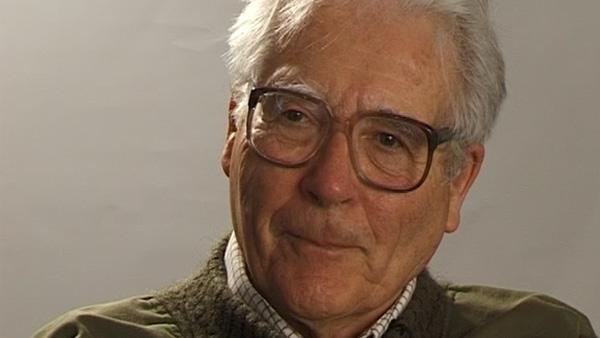NEXT STORY

My scientific education
RELATED STORIES

NEXT STORY

My scientific education
RELATED STORIES


|
Views | Duration | |
|---|---|---|---|
| 1. The box that attracted me to science | 1 | 1012 | 01:37 |
| 2. My scientific education | 2 | 403 | 03:59 |
| 3. The difference between precision and accuracy | 468 | 04:26 | |
| 4. On being a human guinea pig | 1 | 274 | 03:10 |
| 5. How JBS Haldane made his liver fizz | 2 | 644 | 00:42 |
| 6. Health and safety hampers science today | 306 | 01:06 | |
| 7. How I invented the electron capture detector | 428 | 06:10 | |
| 8. What is the meaning of life? | 2 | 526 | 04:12 |
| 9. An invitation from NASA | 3 | 296 | 02:51 |
| 10. Detecting life on Mars | 1 | 344 | 04:20 |

I was turned when I was only four years old. It happened because my father gave me for Christmas a box full of bits of wire and a bell, lights and other things. The kind of stuff that kids nowadays get in a kit. But in those days, that would be about 1923 or '24, kits just didn't exist and he dreamt it up himself. And it was by far the best of presents I'd ever received. And it enthralled me and I remember pestering my relatives and even the postman asking, 'Why do you need two wires to send electricity along when gas or water requires only one pipe'? And nobody, of course, could answer the question, and I think that it was that that made me realise that if wanted to know about the world I'd have to find out for myself. Perhaps I should add my father wasn't... a well-educated man. Indeed, he grew up in the country, he was born in 1872 on the Downs above Wantage. And things were very primitive in those days, he had no education at all and taught himself to read and write when he went to London in his 20s. And I have in my files a certificate from the Borough Polytechnic saying that he's literate. But it was a long time ago, 130 odd years and things were very different then.
Born in Britain in 1919, independent scientist and environmentalist James Lovelock has worked for NASA and MI5. Before taking up a Medical Research Council post at the Institute for Medical Research in London, Lovelock studied chemistry at the University of Manchester. In 1948, he obtained a PhD in medicine at the London School of Hygiene and Tropical Medicine, and also conducted research at Yale and Harvard University in the USA. Lovelock invented the electron capture detector, but is perhaps most widely known for proposing the Gaia hypothesis. This ecological theory postulates that the biosphere and the physical components of the Earth form a complex, self-regulating entity that maintains the climatic and biogeochemical conditions on Earth and keep it healthy.
Title: The box that attracted me to science
Listeners: Christopher Sykes
Christopher Sykes is a London-based television producer and director who has made a number of documentary films for BBC TV, Channel 4 and PBS.
Tags: science, kit, Christmas, present, father, country, education, literacy, scientific question, knowledge, Wantage, London, 1923-1924, 1872
Duration: 1 minute, 37 seconds
Date story recorded: 2001
Date story went live: 21 July 2010